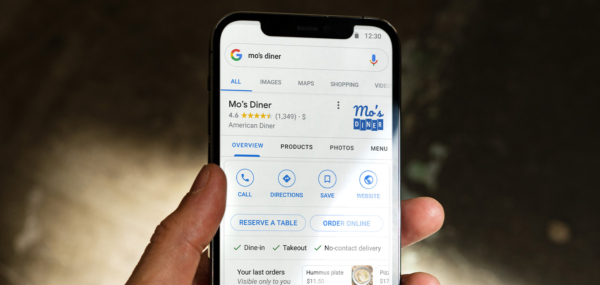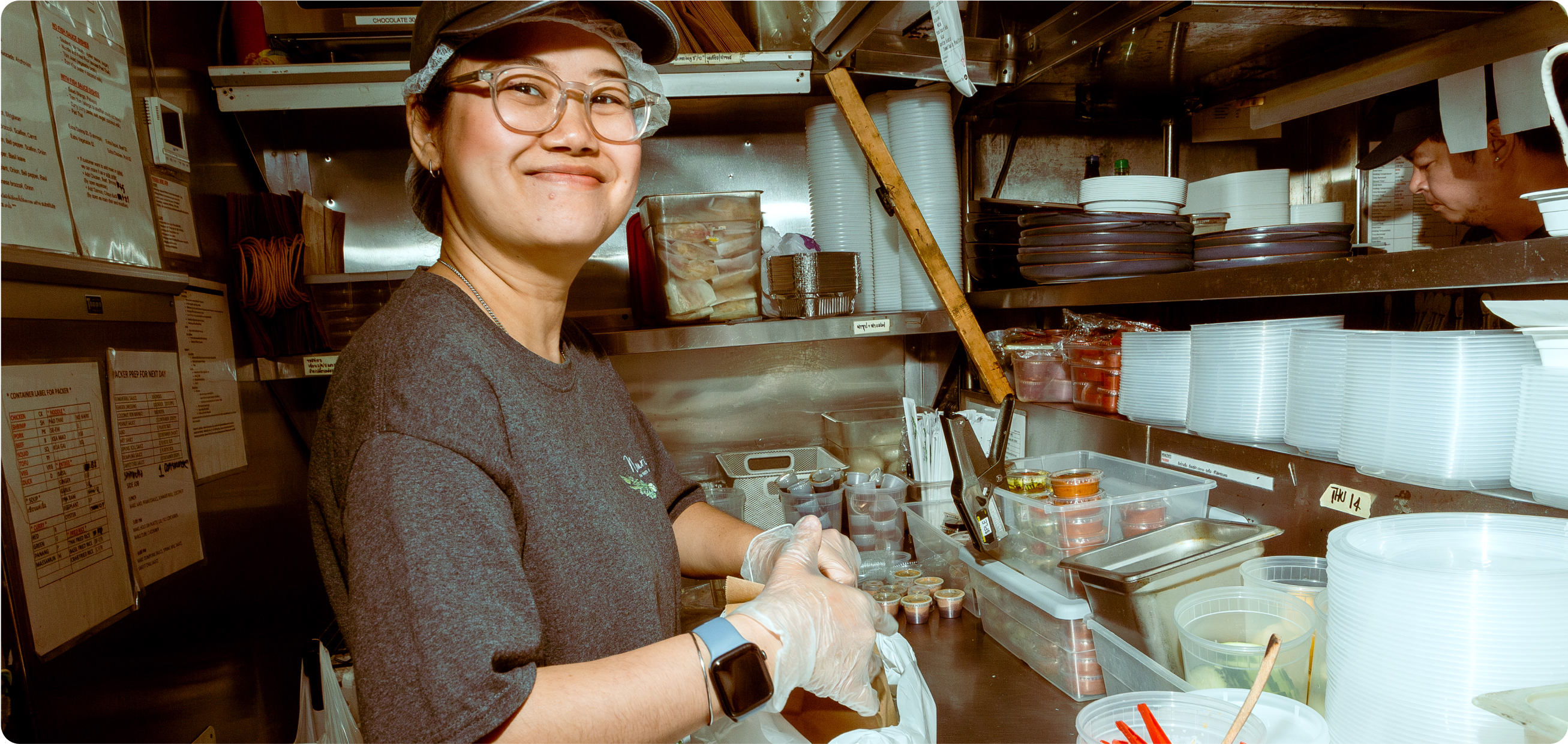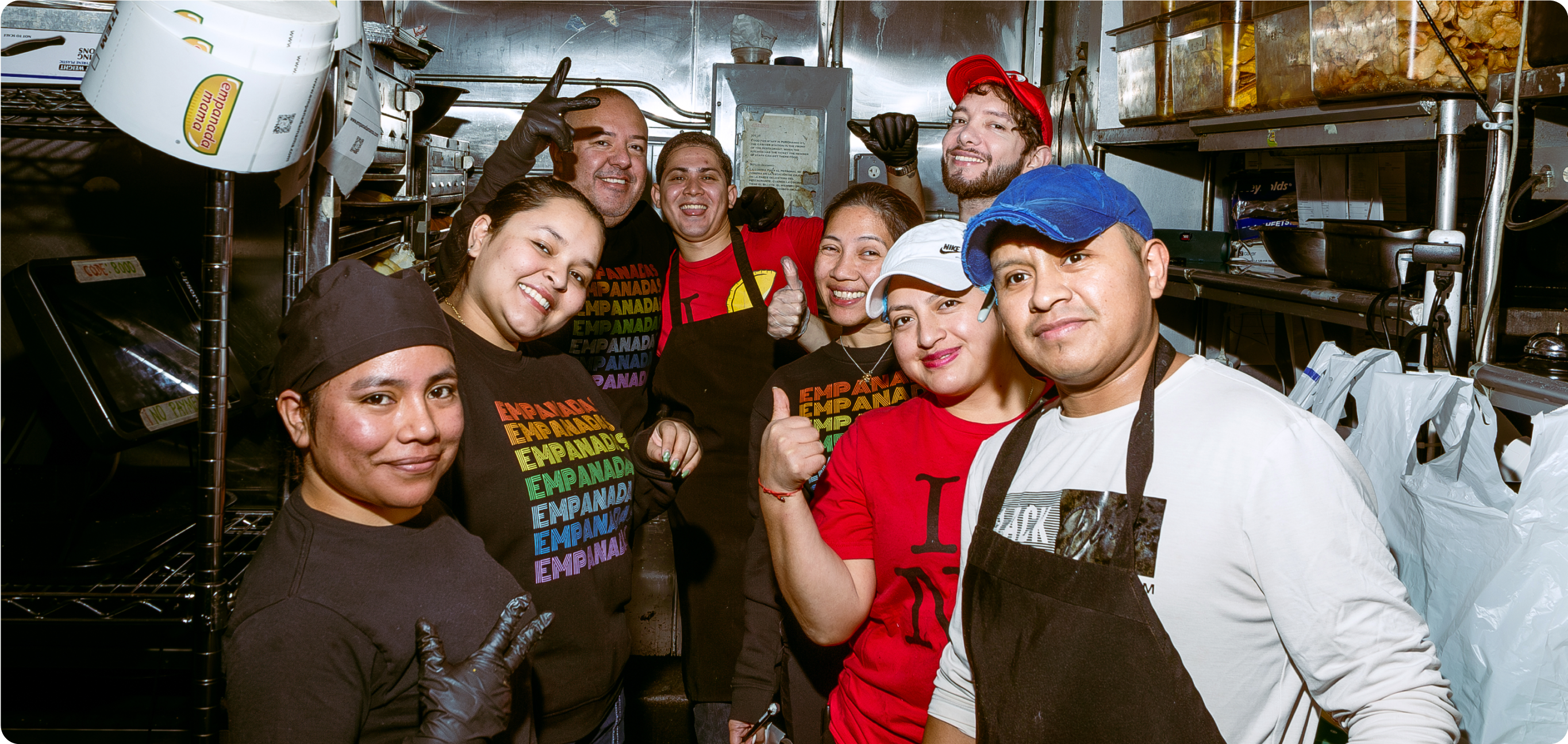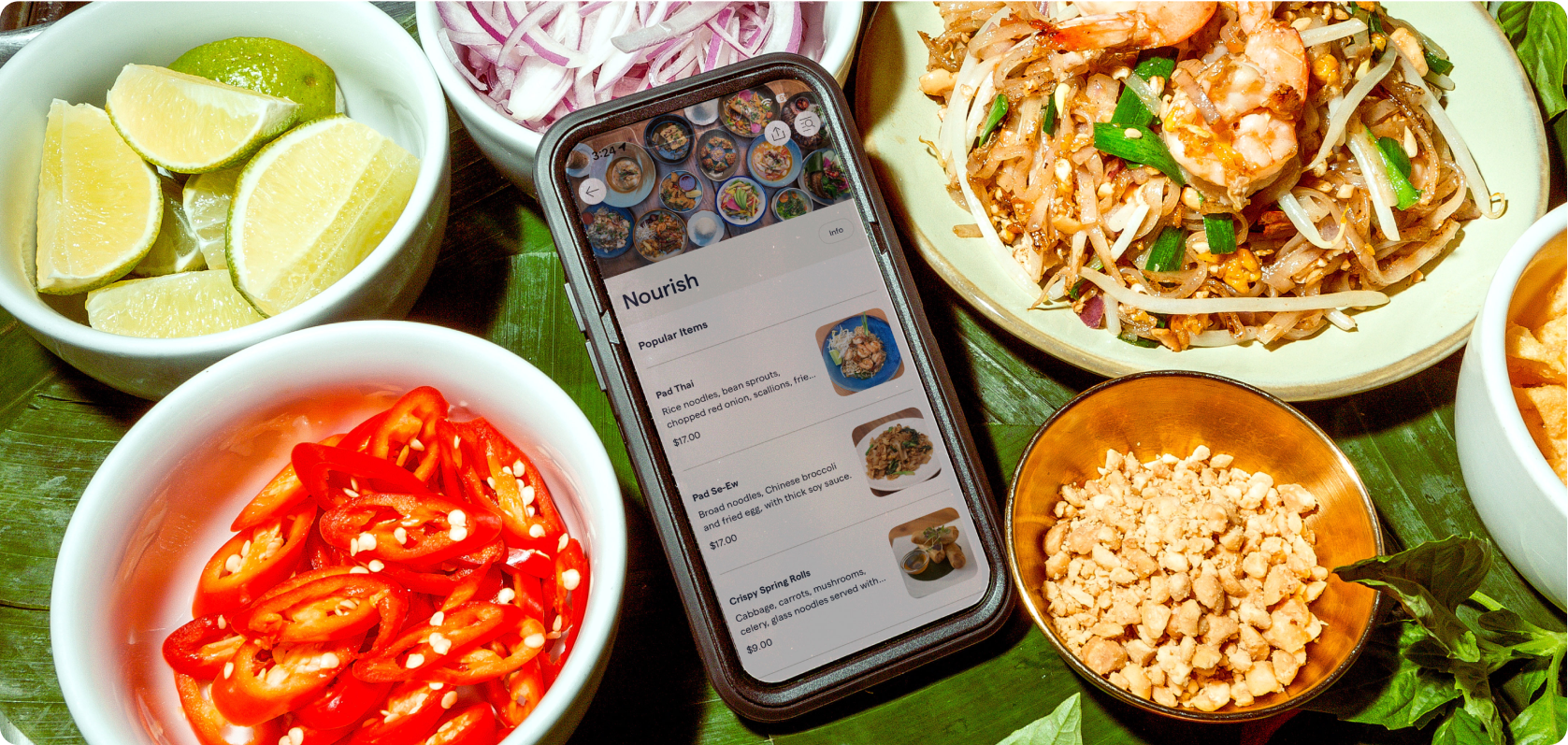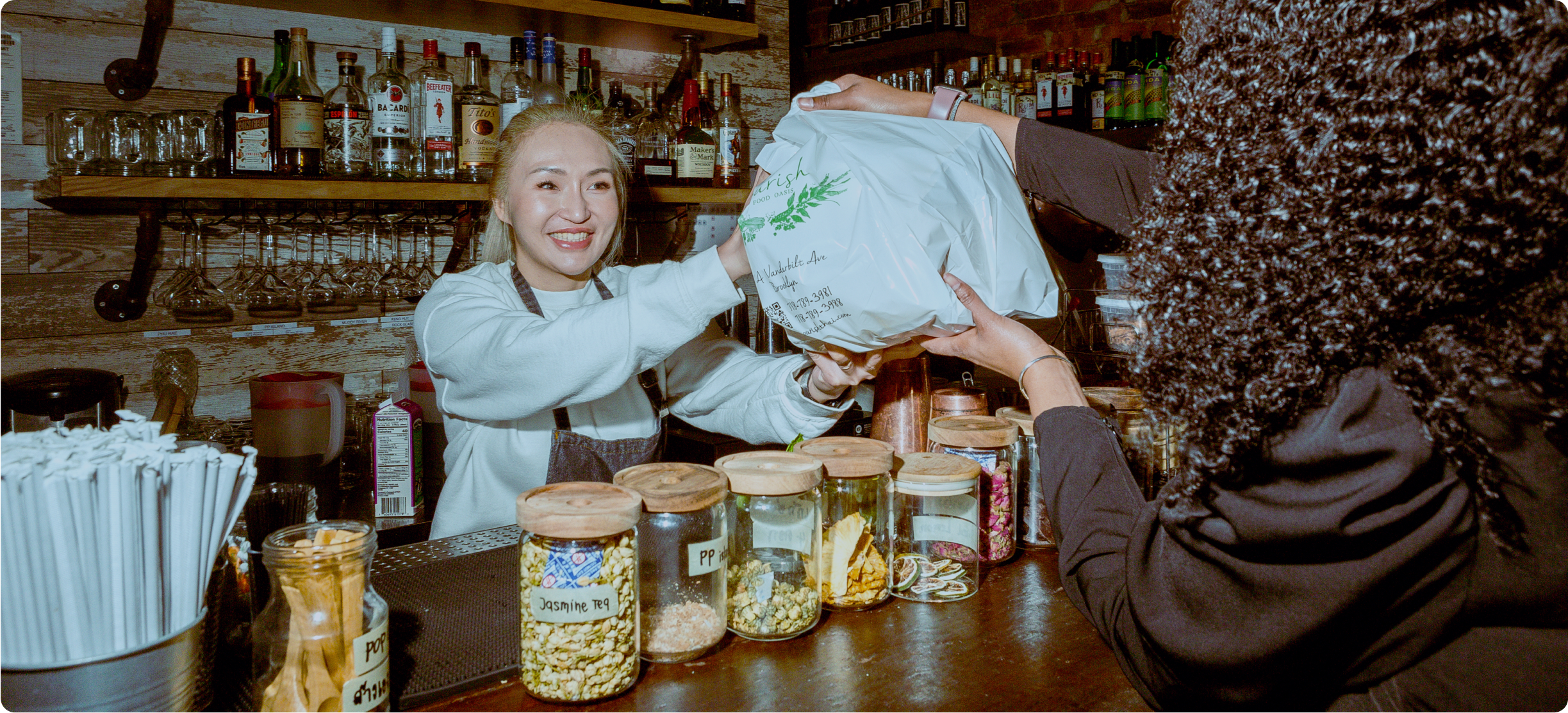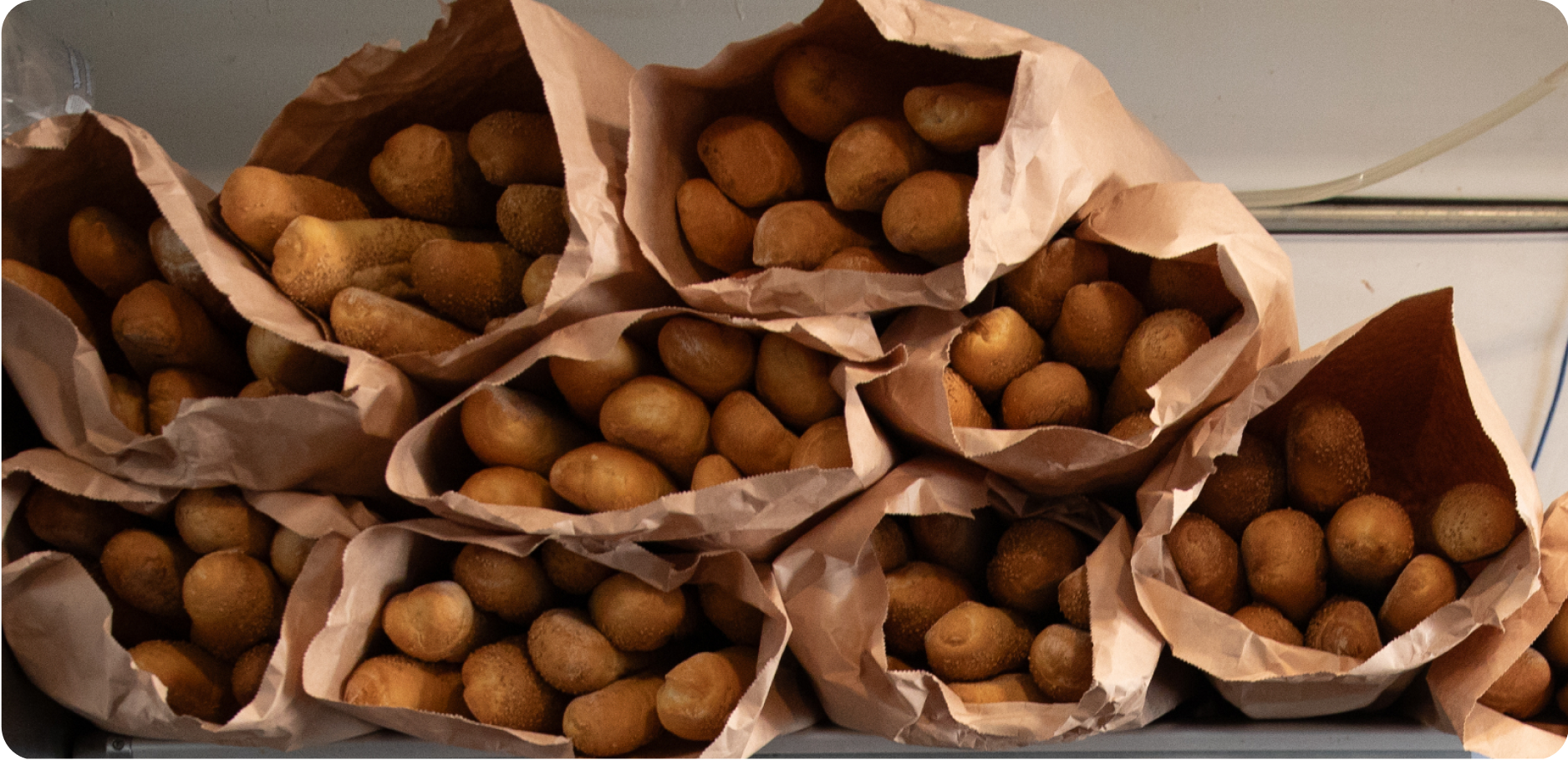4 Hidden Dangers of Third-Party Apps

It’s no secret that the rise of online ordering in recent years has been fueled by third-party ordering apps like Grubhub, Uber Eats, and Postmates. These tech giants are so synonymous with delivery that their brand names are used as a verb for getting takeout–and without visible alternatives, independent restaurant owners are led to believe that these middlemen are essential to starting or growing their businesses.
With so much momentum and marketing dollars behind these brands, it can be hard to peel back the promises and see what the actual risks versus benefits are to restaurant operators.
From declining margins to poached customers, here are four hidden dangers of third-party apps.
Commissions on third-party apps are designed to keep you in the dark.
It’s tempting to take a zero-money-down offer in exchange for paying only when you get an order. It may feel like saving money in the moment, but in the long run, commissions have the opposite effect on your business. By pinning a fee to each order you receive, third party apps make sure to capitalize on your success by eating up your profits as quickly as you make them. It’s important to note that while many promise you higher order volumes, that’s not always the same thing as growing your profits.
Also, the low intro rate that you start with might not stay the same forever—or include all of what you pay. These providers layer on fees for everything from using a tablet to taking calls from customers who find your phone number on their website. They don’t pass on tips to your staff, and rarely have your back in case of credit card disputes. Moreover, as your restaurant becomes more favored with a marketplace’s customers, the platform will demand that you pay a higher commission tier if you want to be featured anywhere near the top of the list.

Third-party apps promote themselves, not you.
Third-party marketplaces promise exposure for your brand by featuring you on the front page or by sending emails on your behalf to their diner database. This is usually tied to an even higher commission rate, in exchange for “brand marketing.” While this tactic can have a short-term boost in traffic, it’s ultimately unlikely to cement your brand in diners’ minds.
This is because, from a diner’s perspective, the brand they see first and foremost when browsing, ordering, receiving confirmation and any follow up notifications is the logo of the third-party app. When the delivery provider owns the entire ordering experience from start to finish, it’s hard for your brand to stay top-of-mind.
Third-party apps keep your customers—and their information—to themselves
The key to customer loyalty in the age of online ordering is data. When you collect information about your customers such as their names, email addresses, and order histories, you get the insights you need to keep them coming back. Armed with your own customer data, you can create personalized email marketing campaigns that leverage strategic offers like promo codes, new menu items, and special events in order to increase order sizes, turn new customers into loyal regulars, and bring in their friends.
Unfortunately, third-party marketplaces realize the value of your customer data, too. They withhold these insights from their restaurant partners in order to increase their own margins and wield more power. Rather than sending you the email addresses of the customers who ordered and enjoyed your restaurant’s food, marketplaces will sell access to your patrons to the highest bidder—directing your customers to businesses that pay out higher commissions. This makes it impossible to regularly engage with your digital diners. Instead of becoming regulars at your restaurant, they become loyal customers of the third-party marketplace you’re paying.

Even if you don’t work with third-party apps, they can make it seem like you do.
Marketplaces will exploit the search traffic of independent restaurants by listing menus and creating ordering pages without permission. Then, hungry customers—who are expecting to order directly from a specific eatery—check out on the unsanctioned page that usually features higher prices or even out-of-date menu items. The third-party provider gets their cut, and the restaurant is left to clean up any bad diner experiences.
Restaurants and diners have begun to speak out against these shady business tactics, and there has been enough public pressure to put some big names in third-party ordering under more scrutiny. There have been a number of local rulings to ban apps from listing restaurants’ without their permission, but the practice still remains widespread.
In order to prevent these middlemen from hijacking your customers—and your profits—you need to fight back. Take control with your very own commission-free online ordering system from ChowNow. Maximize your profits with a team that puts you first and gives you full access to your customer data. Speak with a ChowNow specialist today. We make sure your restaurant doesn’t get burned.
